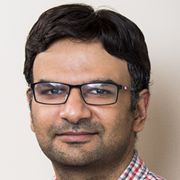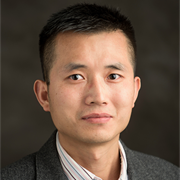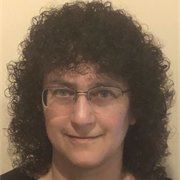Software Systems Development
Spring: Sep 15
Summer: n/a
Part-time (Daytime)
Overview
The Software Systems Development program provides software system developers with the skills needed to design, build, and test systems programs. Learn how to work with systems programs in C and C++ under the guidance of our dedicated faculty in the Department of Computer Science.
Scholarships Available
Some School of Engineering master's and certificate programs offer scholarships to qualified students. To receive full consideration, be sure to complete your application before the submission deadline. Contact the Office of Graduate Admissions at gradadmissions@tufts.edu for more information.
Program Highlights
When you earn your MS in software systems development at Tufts, you'll graduate with diverse and long-term options in the fast-growing industries of systems programming and engineering. Learn how to design, build, and test systems programs in C and C++ through a set of courses containing practical experience in all aspects of software development. Areas of study include: systems programming, program security, software development, systems engineering, and data management.
Graduate Cooperative Education (Co-Op) Program
The School of Engineering's Graduate Cooperative Education (Co-Op) Program provides students with the opportunity to apply the theoretical principles they have learned in their coursework to real-world engineering projects. Gain up to six months of full-time work experience, build your resume, and develop a competitive advantage for post-graduation employment. Learn more about the Co-Op Program.
Program Outcomes
Systems programming is here to stay‚ a complex endeavor requiring human intervention, and it's unlikely to be replaced by artificial intelligence. At Tufts, dedicated professors in the Department of Computer Science will help you get ready for real-world practice at an accelerated rate. With your advanced degree, you'll feel confident managing projects and developing software systems for notable companies like Google and Microsoft.
The software development industry is booming, with a projected job growth of 25 percent in the United States within the next 10 years‚ much faster than the average occupation. As smartphones, tablets, and the applications that make programs accessible to the average consumer continue to integrate into our lives, the demand for software developers will increase.
Careers for graduates include:
- Front-end developer
- Mobile engineer
- Game developer
- Back-end developer
- Application developer
- Tools and enterprise software developer
Application Requirements
Prerequisites for the program include a bachelor's degree and either formal instruction of practical experience in software development, including programming in some high-level language such as Java, C, C++, C# or J#. For those students possessing high-level language experience in a language other than C or C++, Electrical Engineering 200 is recommended as a preparatory course in C.
- Application Fee
- Resume/CV
- Personal Statement
- Transcripts
- Three letters of recommendation
- Official GRE scores (if applicable)
- GRE General Test scores not required for applicants who will have received a degree from an institution located in the U.S. or Canada by time of enrollment. GRE scores required for all other applicants.
- Official TOEFL, IELTS, or Duolingo test scores (if applicable)
- Competitive scores for the Department of Computer Science are below:
- TOEFL Total: 100
- Reading: 26
- Listening: 26
- Writing: 22
- Speaking: 25
- IELTS Total: 7.5
- Minimum of 7.0 for each subscore
- Duolingo Total: 120
- Literacy: 125
- Conversation: 120
- Comprehension: 135
- Production: 105
- TOEFL Total: 100
- Competitive scores for the Department of Computer Science are below:
- Portfolio (optional)
Tuition & Financial Aid
At Tufts University, we believe every qualified applicant deserves the opportunity to pursue graduate study. We are dedicated to helping you understand your financial options and to ensuring that graduate education at Tufts is both accessible and within reach.
Tuition costs for this graduate program are billed at a per credit rate:
| Estimated Tuition for MS Program | |
|---|---|
| Tuition* | $1,799 per credit |
| Total Credits Required | 30 |
| Enrollment Status | Full-Time: 3-4 courses per semester (9-12 credits) Part-Time: 1-2 courses per semester (3-6 credits) |
| Estimated Tuition per Semester | Full-Time: $16,191 - $21,588 per semester (9-12 credits) Part-Time: $5,397 - $10,794 per semester (3-6 credits) |
| Estimated Total Tuition* | $53,970 |
*Estimated based on 2025-2026 tuition rates. Rates are subject to change each academic year. For further information about the full cost of attendance, including additional fees and estimated indirect costs (housing, transportation, etc.), please visit Student Financial Services.
The Tufts University School of Engineering offers partial, merit-based tuition scholarships for the majority of our graduate and certificate programs. All applicants are automatically considered for these awards as part of our holistic admissions review process—no separate scholarship application or additional materials are required.
Additional funding opportunities may include Tufts Double Jumbo Scholarships for Tufts graduates, Bridge Program Scholarships for students and alumni from select partner institutions, and veteran and military education benefits for eligible service members and their dependents, including participation in the Yellow Ribbon Program.
To further support your investment in a Tufts graduate education, a range of financing options are available, including federal and private student loans. For more details, please visit our Graduate Financial Aid page.
Career Outcomes

Average Salary: $130K+
Projected Job Growth (2022-2032): 25%
*Sources: Average salary and projected job growth statistics are from the U.S. Bureau of Labor Statistics Occupational Outlook Handbook.
Faculty

Alva Couch

Alva Couch
Research/Areas of Interest: data science, software systems engineering, performance analysis, system, network, and data management

Marty Allen

Marty Allen
Research/Areas of Interest: Artificial intelligence, machine learning, reinforcement learning.

Remco Chang

Remco Chang
Research/Areas of Interest: Data visualization, visual analytics, human-computer interaction, databases, computer graphics

Ming Chow

Ming Chow
Research/Areas of Interest: cyber security

Lenore Cowen

Lenore Cowen
Research/Areas of Interest: computational molecular biology, data science, graph algorithms, network science, discrete mathematics

Ethan Danahy

Ethan Danahy
Research/Areas of Interest: design, implementation, and evaluation of different educational technologies

J.P. de Ruiter

J.P. de Ruiter
Research/Areas of Interest: Cognition and Psycholinguistics

Fahad Dogar

Fahad Dogar
Research/Areas of Interest: Improving performance and reliability of networked systems, specifically cloud-based systems, mobile and wireless systems, and the Internet. Also, interested in designing technologies for developing regions.

Karen Edwards

Karen Edwards
Research/Areas of Interest: low-dimensional geometric topology

Jeffrey Foster

Jeffrey Foster
Research/Areas of Interest: Programming languages, software engineering, security

Soha Hassoun

Soha Hassoun
Research/Areas of Interest: Machine Learning for Systems Biology; Metabolic Engineering, computer-aided design for integrated circuits

Michael Hughes

Michael Hughes
Research/Areas of Interest: Machine learning : probabilistic models, Bayesian inference, variational methods, time-series analysis, semi-supervised learning Clinical informatics : electronic health record analysis

Robert Jacob

Robert Jacob
Research/Areas of Interest: human-computer interaction, new interaction modes and techniques, implicit brain-computer interfaces, user interface software

Dave Lillethun

Dave Lillethun
Research/Areas of Interest: computer science education, distributed systems, operating systems, networked systems, software development, secure systems and networking

Liping Liu

Liping Liu
Research/Areas of Interest: Machine Learning, Data Science, Deep Learning, Generative Models, Time Series, Graph Learning

Noah Mendelsohn

Noah Mendelsohn
Research/Areas of Interest: distributed systems, operating systems, World Wide Web

Megan Monroe

Megan Monroe
Research/Areas of Interest: data, visualization, language

Raja Sambasivan

Raja Sambasivan
Research/Areas of Interest: Cloud computing, evolvability, debugging distributed systems.

Matthias Scheutz

Matthias Scheutz
Research/Areas of Interest: Artificial intelligence, artificial life, cognitive modeling, foundations of cognitive science, human-robot interaction, multi-scale agent-based models, natural language understanding.

Mark Sheldon

Mark Sheldon
Research/Areas of Interest: programming languages, software systems, concurrency, distributed information systems

Elaine Short

Elaine Short
Research/Areas of Interest: human-robot interaction, accessibility, robotics, human-in-the-loop machine learning, assistive technology Applying human-centered design and disability community values to the development, deployment, and evaluation of AI and machine learning for robotics, including: human-centered human-in-the-loop machine learning; disability-friendly assistive robotics; autonomous HRI in groups, public spaces, and other human-human contexts; and accessibility and disability inclusion in robotics education and the computing research community.

Jivko Sinapov

Jivko Sinapov
Research/Areas of Interest: Artificial Intelligence, Developmental Robotics, Computational Perception, Robotic Manipulation, Machine Learning, Human-Robot and Human-Computer Interaction

Donna Slonim

Donna Slonim
Research/Areas of Interest: data science, algorithms for analysis of biological networks, gene and pathway regulation in human development, algorithms for precision medicine, computational approaches to pharmacogenomics and drug discovery or repositioning

Diane Souvaine

Diane Souvaine
Research/Areas of Interest: computational geometry, design and analysis of algorithms, computational complexity

Richard Townsend

Richard Townsend
Research/Areas of Interest: functional languages, compilers for embedded systems, program analysis and optimization, embedded domain-specific languages

Daniel Votipka

Daniel Votipka
Research/Areas of Interest: computer security and privacy, secure development, security professionals, human-computer interaction, mobile security